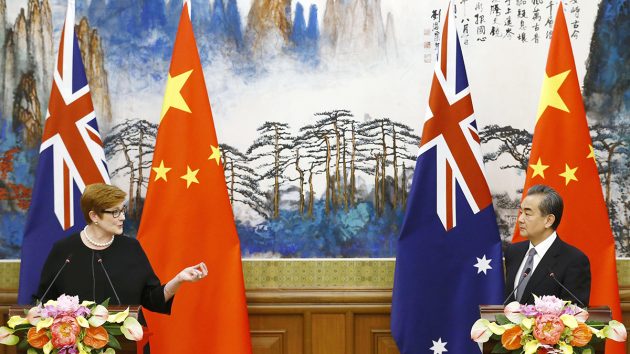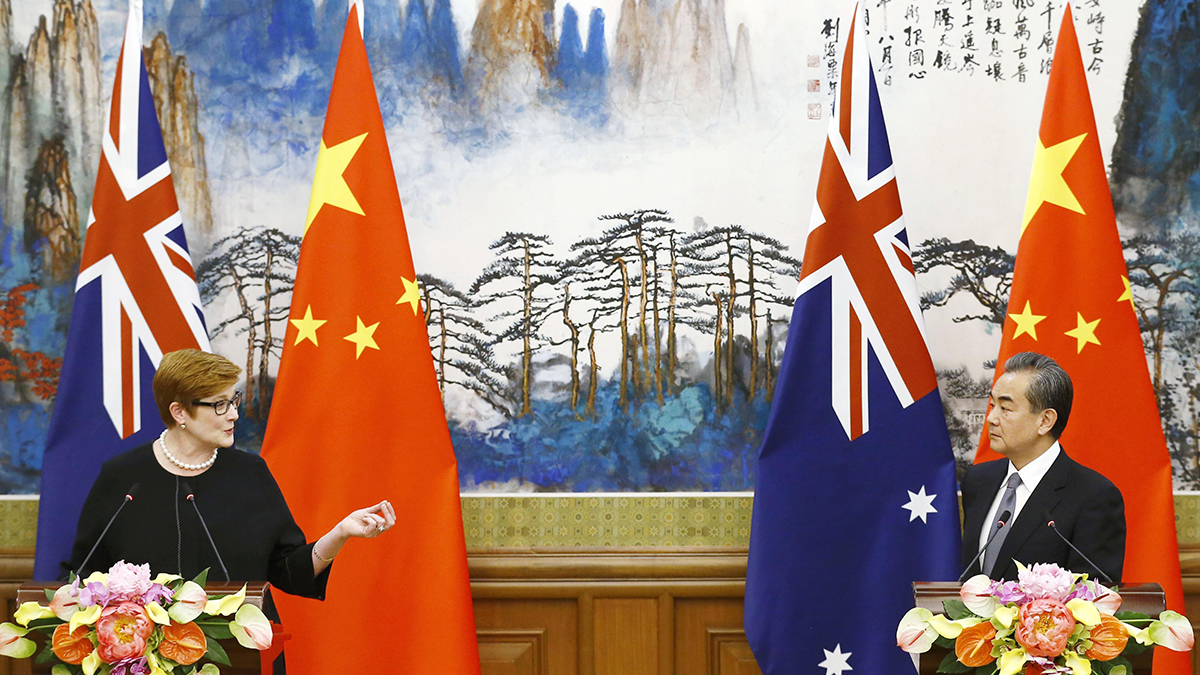A curious thing happened last week: China’s “wolf warriors” suddenly began to sit up and beg.
“We hope that the relationship can come back to the right track as early as possible, and we would welcome efforts by all who want the relations to improve to make some efforts,” said China’s Foreign Minister, Wang Yi.
Apart from a reflexive middle-finger, this statement also prompts the question: why?
What’s made Beijing suddenly want to kiss and make up? Could it possibly be that they needed our business far more than they let on?
This week a Deloitte Access Economics report noted that China’s trade war has caused the iron ore price to be bid up to historic highs on the world market, giving a huge boost to our miners, investors, and the economy.
High prices mean not just greater revenue for the Australian government, but higher costs for China, which desperately needs our raw materials to keep its own economy ticking over via their massive infrastructure program.
According to the analysis, by 2023-24, higher iron ore prices may leave our COVID-driven budget deficits $15 billion better off.
China’s attempt to punish Australia has already delivered plenty of wins for everyday Australians. Lobsters, which even in Tasmania were hard to get at any price, as the bulk of the catch was shipped off to China are suddenly so cheap that supermarkets have had to impose per-customer limits. Even better, lobster populations are recovering.
It’s likely that the effects at home are putting even more pressure on the communist regime.
No, China is not a democracy, nor is it a good place to go against the government, as the Chinese Communist Party’s millions of victims demonstrate.
But the country’s rising middle classes love Australian wine and food and other products for their quality, perceived status, and safety. Making them more expensive, or taking them off the table entirely is not popular, and could further shake confidence in Xi Jinping’s leadership.
Meanwhile, Australia has had a rude awakening that its over-reliance on China (while turning a blind eye to the gross brutality of the communist regime) was never a good idea. The affect on our university sector, in particular, has been catastrophic.
But China’ bullying has had other positive effects.
China’s petulance has done what our own politicians have been unable to do for decades: unite us around a common cause, for Australia.
Consider the patriotic memes that have been circulating online[…]with the exception of the blame Australia first left, as a country we have rarely felt so united.
The same thing is happening across the world, which is waking up to the challenge of China’s schoolyard bullying, and increasingly seems prepared to stand against it.
The Daily Telegraph
Therein lies the opportunities which Australia is already exploiting politically. A loose alliance, “the Quad”, is already forming among Asia-Pacific nations alarmed by the threat of an increasingly belligerent China. India is also signalling its interest in new trade arrangements with Australia.
We have nothing to lose but our Made in China shackles.

Please share this article so that others can discover The BFD

